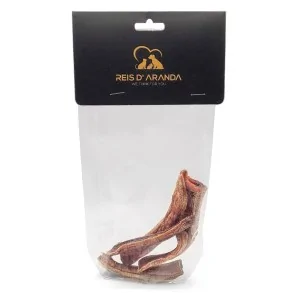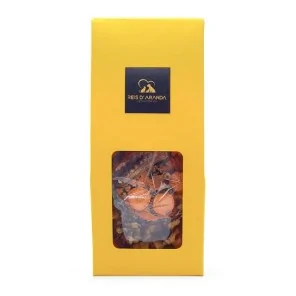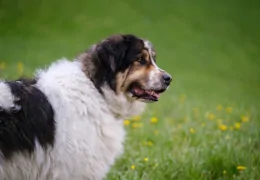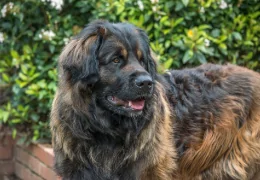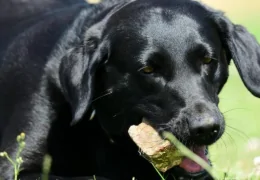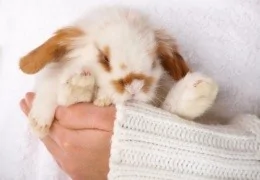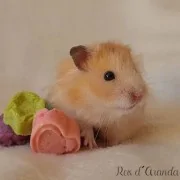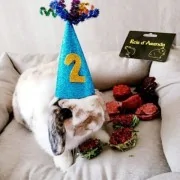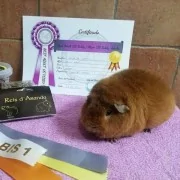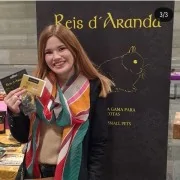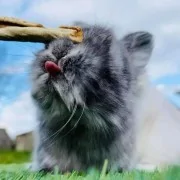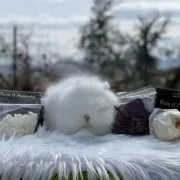The Tornjak originated from genetically homogeneous, almost extinct, indigenous shepherd dogs. These dogs have...
VACCINATIONS IN RABBITS
VACCINATION IN RABBITS
We all know how important vaccines have been for the survival of the human species and different animals over the years, helping to eradicate or control diseases such as polio, diphtheria or whooping cough (among many others) and, in the case of animals, diseases such as rabies.
In the case of rabbits, there are three vaccines for rabbit diseases and their availability varies depending on the country.
WHAT DISEASES ARE RABBITS VACCINATED AGAINST?
Rabbits are mainly vaccinated against two diseases:
- MYXOMATOSIS
- VIRAL HAEMORRHAGIC
Of the latter we can find two variants: the "classic" and the "VH2" (a more virulent strain). Most owners and vets vaccinate only against the first strain, as the vials for the second are often too expensive and most of the product ends up in the rubbish (there are no single-dose vials, but the vaccine vials for rabbits contain between 25 and 40 specimens).
But the important thing is that they are vaccinated against the first two. Whether your rabbit lives alone or with other rabbits, whether it lives in the city or in the countryside, it is very important that we protect them and the cost of this will vary between 1 and 2 times a year (depending on the vaccination format).
AT WHAT AGE SHOULD I VACCINATE MY RABBIT?
Rabbits should be vaccinated from the age of 2 months, it is not necessary to vaccinate them before this age because the mother herself has passed on a certain amount of immunity through the mother's milk (the mother can be vaccinated during this period without it being harmful to the offspring) but, when they are "definitively" weaned, we should vaccinate them ourselves.
There are two forms of vaccination:
- SEPARATE
- DOUBLE
What is the difference? It is very simple. The separate form is the most common and the most recommended at first, first the myxomatosis vaccine is given at 2 months of age (which is renewed every 6 months) and at least 15 days later we apply the Haemorrhagic Virus vaccine (VH) which has to be renewed every year (it has an immunity of 12 months). On the other hand, we have the "DOUBLE" which is a type of vaccine that combines both diseases and is renewed every year, this is a good option for those adult animals that have already received a separate dose when they were young, as otherwise it can be a little "strong".
Generally, the vaccination format depends on the vet and the laboratory where you buy the vaccines.
SHOULD I TAKE PRECAUTIONS BEFORE VACCINATING MY RABBIT?
Yes, basically we must make sure that our rabbit is healthy before vaccinating it. We can never vaccinate animals which have important health problems, are convalescent or excessively old; why? To begin with we must be clear about how vaccines work, these are very low intensity (or inactive) "samples" of the diseases which they protect against, if they are applied to a strong and healthy animal the immune system will learn everything about the disease which has been introduced into the body, it will know what it is, how to repel it or fight against it... On the other hand, if it is applied to an animal whose immune system is weak or non-existent, this "very weakened" virus can be stronger than the animal's immune system, producing the very disease against which we wanted to immunise it.
Before each vaccination, the vet will check our animals and decide if it is the right time to vaccinate them or if it is necessary to wait for a specific reason. We should not panic, we can wait a few days and, when our animal is 100% well again, we can vaccinate it.
In the case of older rabbits (over 4-5 years of age) this may vary a little, because as they grow older their immune system will become weaker, they will be more prone to infections or simple external parasites such as mites and, in these cases, it is better to avoid vaccination and take extreme precautions.
HOW TO PREVENT MYXOMATOSIS AND VIRAL HAEMORRHAGIC DISEASE?
Vaccination is the best way to prevent these diseases, but it is also essential to put mosquito nets on the windows, anti-insect lamps, keep the area where the animal lives clean and, if a new animal is brought into the house, keep a quarantine period in a separate room (always change your shoes and use gloves or disinfect your hands before moving to the next room).
These two diseases have a multifactorial contagion process:
- DIRECT CONTACT WITH SICK ANIMALS
- DIRECT CONTACT WITH OBJECTS CONTAMINATED BY SICK ANIMALS (feeding troughs, drinking troughs, toys...)
- VECTOR OWNER (clothes, footwear, hands...) It is important to wash everything well and disinfect if we have been in farms, fields or "hot" spots).
- VECTOR INSECTS (mainly mosquitoes)
We will have to be especially careful if we live in rural areas, near meat or fur rabbit farms, hot spots (areas very prone to the disease in wild animals), lakes, ponds or "dead" rivers (with very little current) as mosquitoes lay their eggs on the surface of calm water.
In the city, infection is more complicated as there are "more barriers" to it, but not impossible.
CONCLUSION
Vaccination is essential, a small expense that can save us from more than one annoyance and, in addition, if we have a case in our house, we have quite an important problem, as we will have to disinfect the house or room where the animal has been for months, throw away everything it has touched (if we can burn it, all the better) and notify our vet so that he can take the necessary measures (in some cases, notify the health authorities).
Leave a comment
Log in to post comments
Comments
Gracias por la información!
By: Maria Salomé On 06/06/2024Buena información, siempre me han dicho que si vives en la ciudad las vacunas no son importantes, pero mañana mismo voy a pedir cita para mi conejo, no quiero que se enferme
Vacunas para conejos
By: Belii On 05/05/2024Soy de DF y mi veterinario dice k no tengo que vacunar a mi bebenejo xk vive solo, yo kiero lo mejor para él así k voy a investigar sobre las vacunas, no kiero que se me muera :( Mi bebenejo se llama Herminio Froilán pero todo le decimos "Gordo"


